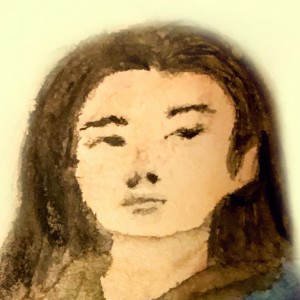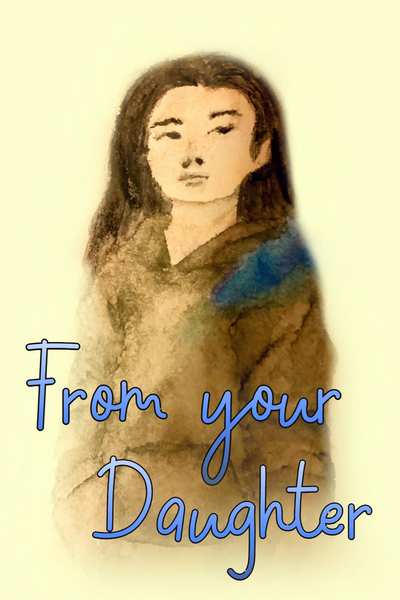To my birth family,
In my last letter I introduced my friend Lisa Chou. She’s one of the first Chinese friends I made in post secondary, and she’s been enculturing me in the traditions of the “motherland.”
Much of what Lisa has shared with me about Chinese culture and what it’s like growing up in it is awesome. For someone like me who hasn’t really had the same exposure to it Chinese culture sounds so cool. I mean, picture a mom who can make Peking duck from scratch or dumplings from the same recipe their mothers and grandmothers also used.
When I first began learning things from Lisa there was a period where I panicked. It was like I was grieving about the life I could have had, the life I could never have. This period didn’t last very long, since Lisa and our other Chinese friends quickly consoled me that I really didn’t miss much.
Hold up.
I didn’t miss much?
How could not growing up with influences from your heritage be considered not missing much? It took a deep discussion to have all cards on the table to find out where my friends were coming from and what they actually meant.
What Lisa and the others were trying to say was exactly what I’d been telling them about adoption: all that glitters is not gold. Living with Chinese parents is not all it appears to be. Like with any parents of any culture it can’t always be sunshine and rainbows. There will be things in your relationship that you don’t agree with, and personalities that will clash.
I won’t go into it too much because I don’t want to blab Lisa’s entire childhood to you.
The general agreement among my CBC friends is that when you grow up encultured in both Chinese and Canadian traditions they tend not to see eye to eye 24-7. Take for instance all those stereotypes I was raving about in my other letter. Lisa’s one of my two CBC friends who told me about the Sarah Chang stereotype.
She and many others are particularly stressed by Stereotype 5, the one about parents who don’t want their kids to leave them.
Family matters to Chinese people. Having big families with sons to carry on the family name was also practiced in the West, but family values remain constant in China, thanks to traditions of guanxi and filial piety.
When Lisa explained to me that Chinese families aren’t always the most accommodating I began thinking about what she could possibly mean. I’ve seen enough Chinese dramas to recognize the tropes, but watching them with Lisa and having her point out all the similarities they have with her upbringing made it real.
For instance, she pointed out during one series that instance of a mother who spoiled her lazy son instead of supporting her genius daughter because of their sexes is still a possibility among Chinese families, depending on how deep traditions and older values run. What I was hearing was that sons still have a great deal more value within the family than daughters, and that hit me real hard.
Another episode where the Chinese in-laws would not accept the son-in-law because he was not Chinese is another thing Lisa says I will never have to worry about. Although Chinese families living in Canada aren’t necessarily racist, it’s not uncommon for large ethnic communities to keep to their own. I feel really bad for writing that, but think about it. If I still lived with you in China would your first choice of a son-in-law be a Chinese person or an American person? (And please don’t actually send your response in your letter.)
The marriage and association thing was something that Lisa especially stressed. Thousands of years of practicing filial piety will leave its impact no matter how far away from home the descendants travel. On more than one occasion my CBC friends have mentioned not being open about their relationships with their parents. It ranged from friendships all the way to lovers.
These were people who were uncomfortable with introducing people to their parents or who knew their parents would not fully approve of who they associated with based on the person’s race, sex, and social class. While that happens throughout the world I hadn’t given much thought before to how a traditional Chinese family would take it. I couldn’t imagine Lisa’s parents being people who might reject someone like me marrying into their family just because I wasn’t Chinese enough. (Not to say that this is how they feel; this is just as an example!)
To a girl whose parents would be happy if she even found a date that’s pretty scary. Okay, my parents aren’t that desperate for me to start dating, but they encourage me to be social and be with people no matter who they are (excluding your average serial killers, paedophiles, plain jerks and assholes, etc). They wouldn’t mind if the guy I brought home was caucasian, Chinese, or black. They wouldn’t care what religion my partner identified as. Heck, they wouldn’t even care if they were straight or bisexual or pansexual.
When I mentioned that to Lisa she sighed and said, “If only.”
So I guess some parts of Chinese family culture are things I didn’t miss out on. It’s so strange to not have to worry about all those things when bringing people to meet my parents. I can’t imagine even having one friend whom I’d be worried about how my parents would perceive them.
Now, this wasn’t to say that Lisa’s family disapproved of anyone who wasn’t Chinese, nor am I trying to say that all Chinese families are exclusive. Many caucasian families I know are also very exclusive about who they associate with. I’m just saying I’m grateful I’ll didn’t grow up in a family where that would be a problem, and hopefully never will be.
So from the bottom of my heart I hope that this was a hurdle I didn’t miss out on had you chosen to keep me in the family.
Sincerely,
Lillian
P.S. In a very unlikely future don’t be surprised if I bring home a partner who isn’t Chinese. I grew up in Canada in an area where you can count the number of Chinese people on your fingers and toes!












Comments (0)
See all